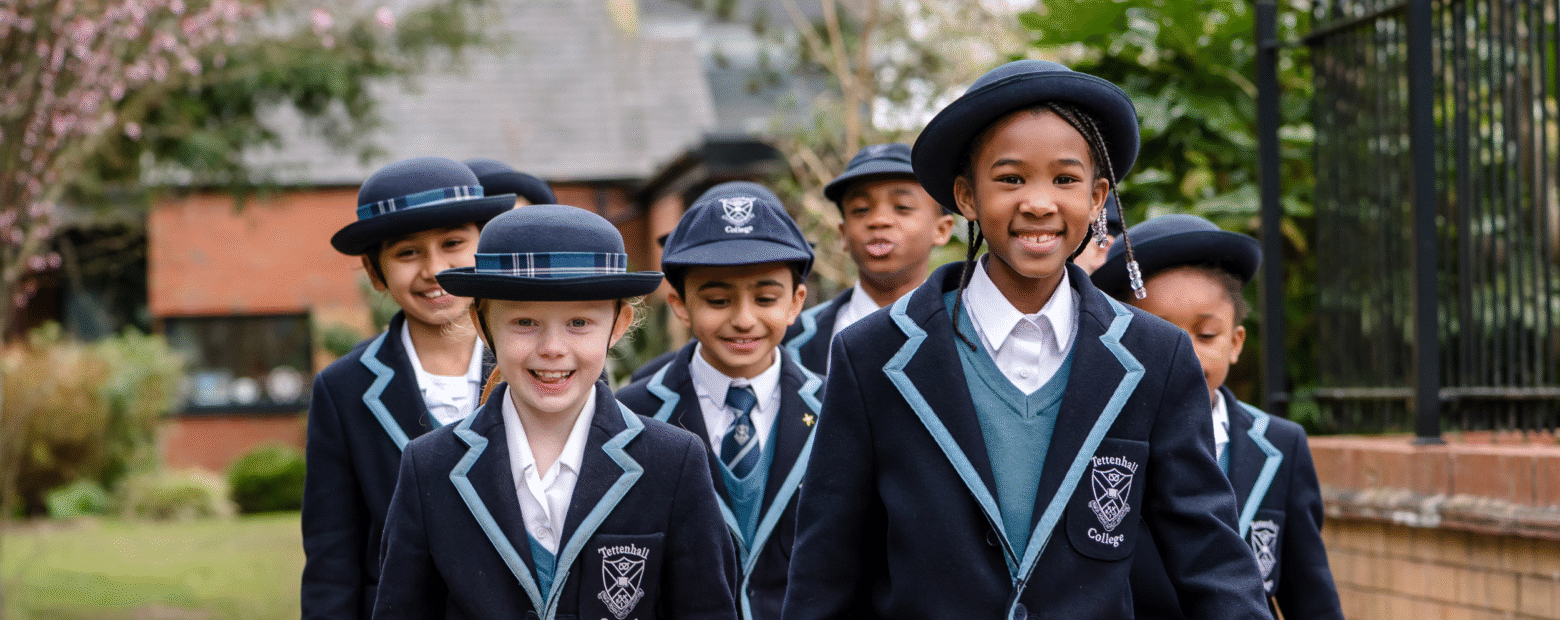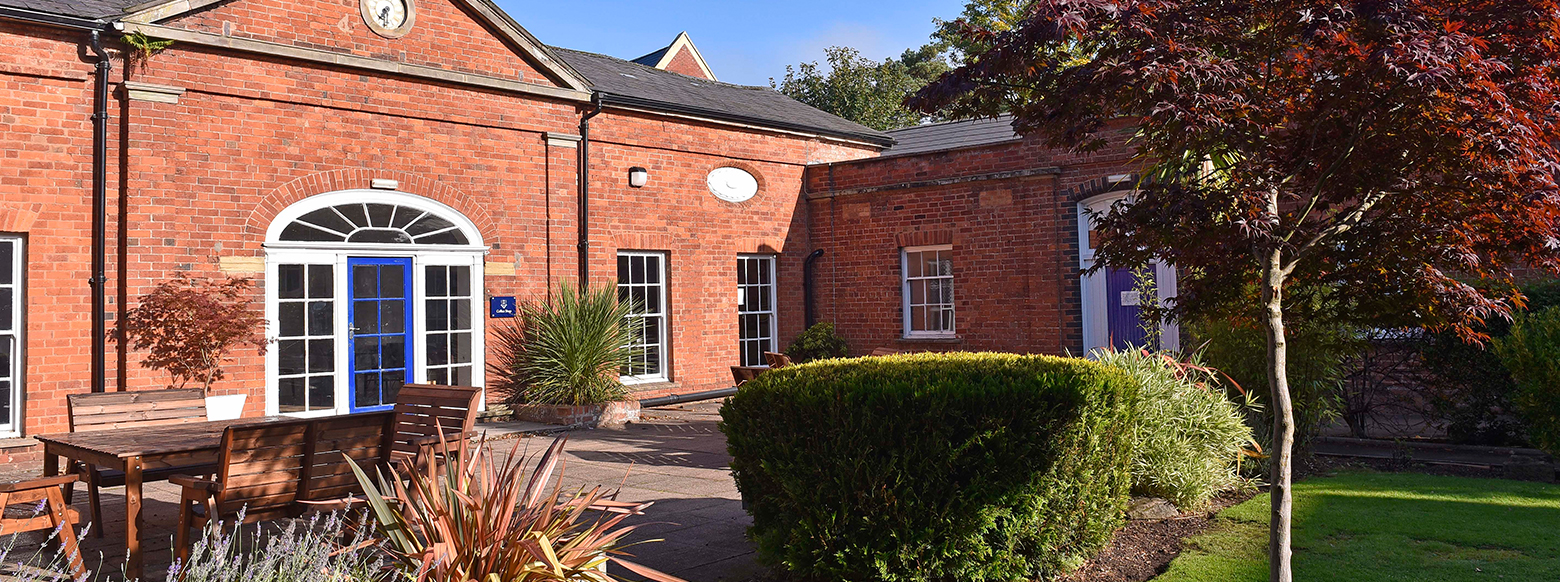The Preparatory Pathway Programme illustrates the academic journey and development through our Preparatory School, where a love of learning is shared with every pupil, from our very youngest learners in Nursery and Pre-School through to the most senior pupils in Year 6, preparing to take those very important steps towards their Senior School education.
STEP ONE: DISCOVERY
Nursery & Pre-School: Ages 2 - 4
When your child joins the Nursery or Pre-school at Tettenhall College Preparatory School, they will be given daily opportunities to explore, play and develop. During this key discovery stage, each pupil shares their daily learning with a small, familiar and happy group of peers, who explore our beautiful nursery and magical outdoor woodlands.
As the children in our Nursery progress through to our Pre-School class, subtle but important changes of routine and classroom structure start to prepare each person for the learning journey ahead. Our Pre-School children work to weekly topics and explore themes though a variety of skills. They start their weekly swimming lessons in our on-site pool and take a lovely daily walk up to the College dining room where sharing food with friends and others is an important part of the day.
Elements of the discovery stage
Our well-resourced environment allows each of our pupils to:
- Develop the fundamental elements of Reading, Writing, Spoken Language and Numeracy.
- Strengthen and promote their fine and gross motor skills.
- Build positive relationships with the children and adults they spend time with each day.
- Understand that they are part of a wider school and at the very earliest stages of their personal learning journey.
- Spend significant amounts of time in our wonderful outdoor settings, learning from nature and allowing it to be part of their daily experience.
- Share their own experiences of the world around them and learn from the experiences of others to build a growing and informed sense of culture, community, difference and self.
STEP TWO: GROWING ROOTS
Reception to Year 2: Ages 4 - 7
When children progress through to the Growing Roots phase of Tettenhall College Preparatory School they transition from play based learning to a more formal learning environment. Group based work remains central in the early parts of this phase as each child continues to explore new concepts and build on those already introduced.
Children join this phase of their school life at varying stages. However, our experienced teachers ensure a personalised approach that allows work to be tackled at the most appropriate level. The Growing Roots phase allows each child to strengthen their independence and learning in preparation for the step up into the next phase.
Elements of the growing roots phase
- A clearly defined programme of study for each area of the curriculum which ensures a strong and thorough underpinning of learning and the development of skills and knowledge.
- A core focus on the development of their Reading, Writing, Spoken Language and Numeracy skills.
- Tracking and monitoring of their work and development, with information on scores and attainment shared regularly with parents along with meaningful information as to what this means for their child.
- Differentiated learning approaches for each individual child in each class. Personal attention is given to ensuring everyone gets the very most from each lesson.
- Developing the range of subjects on their timetable. From Reception class onwards, we introduce French, Computing, Music, Art and Science. Each class has a weekly Forest School lesson and a weekly class in the College library.
STEP THREE: DEVELOPMENT
Years 3 & 4: Ages 7 - 9
As children take the step up into the Development Phase of the Pathway journey, the pace, challenge and scope of daily learning increases. By this point we have a clear picture of a child’s current level and potential and the Development Phase is specifically designed to harness this potential effectively and continuously. We expect children to work more independently through the Development Phase and be able to concentrate as their teachers introduce new topics and methods. The curriculum is expanded to introduce a second Modern Foreign Language.
Elements of the development stage
To allow each child to work towards reaching their own personal learning goals we:
- Put in place extended goals for attainment and progression;
- Continually review each child’s personal targets in Mathematics and English;
- Develop confidence and competence with the recalling of key facts and repetition of key skills;
- Ensure the importance of handwriting and the presentation of work is mastered;
- Continue to differentiate teaching to ensure each child has the most effective approach delivered for them;
- Provide ongoing additional support from Teaching Assistants in the key areas of Mathematics and English;
- Introduce more Senior School subject specialists in lessons such as Music, Performing Art, Modern Foreign Languages and Art;
- Introduce verbal and non-verbal reasoning within the curriculum;
- Expect and support increased levels of personal organisation and responsibility for learning, including completing regular and targeted homework;
- Work with each child to promote pace and accuracy in completing work to set time frames and in more formal test conditions.
STEP FOUR: SENIOR PREPARATION
Years 5 & 6: Ages 9 - 11
In the most senior years of Preparatory School, our pupils increasingly look ahead to the next steps that they will be taking into Senior School, whilst, of course, seeking to get the very most from Prep.
The Senior Preparation Phase has at the heart of it an accelerated approach to tailored learning for each pupil, as we work with a child to build on all they have done, in anticipation of all that is to come.
Elements of the senior preparation stage
We are ambitious for every child at Tettenhall College Preparatory School and the Senior Preparation Phase therefore:
- Prioritises Mathematics and English with a structured approach to teaching more advanced and complex elements of these core subjects. The application of and strong use of grammar is a core aspect of the English programme whilst the Mathematics scheme now seeks to take on algebra, geometry and statistics.
- Allows pupils to take on positions of responsibility within the school as Prefects and Captains. To act as a role model for younger pupils is key to developing maturity and a sense of self, all of which are needed when moving into a senior school setting.
- Includes regular formal and informal tracking and testing to inform the next steps of each teaching programme.
- Ensures an increasing number of lessons are taken within our Senior School facilities, most especially Science and Modern Foreign Languages, ensuring pupils are familiar with moving to different rooms and teachers.
- Looks towards applications for scholarships in the Senior School becoming more focused, with those seeking to secure such opportunities taking an active role within the Aspiring Scholars’ Programme. This is underpinned by the TC Junior Challenge Programme (the precursor to the Senior Challenge Programme), which every pupil is warmly encouraged to take part in as fully as possible.
- Sport, Music, Performing Arts and Cultural Studies remain key parts of the curriculum and timetable, allowing pupils to experience a full and dynamic range of subject areas, as they will do when they move up to the Senior School.





